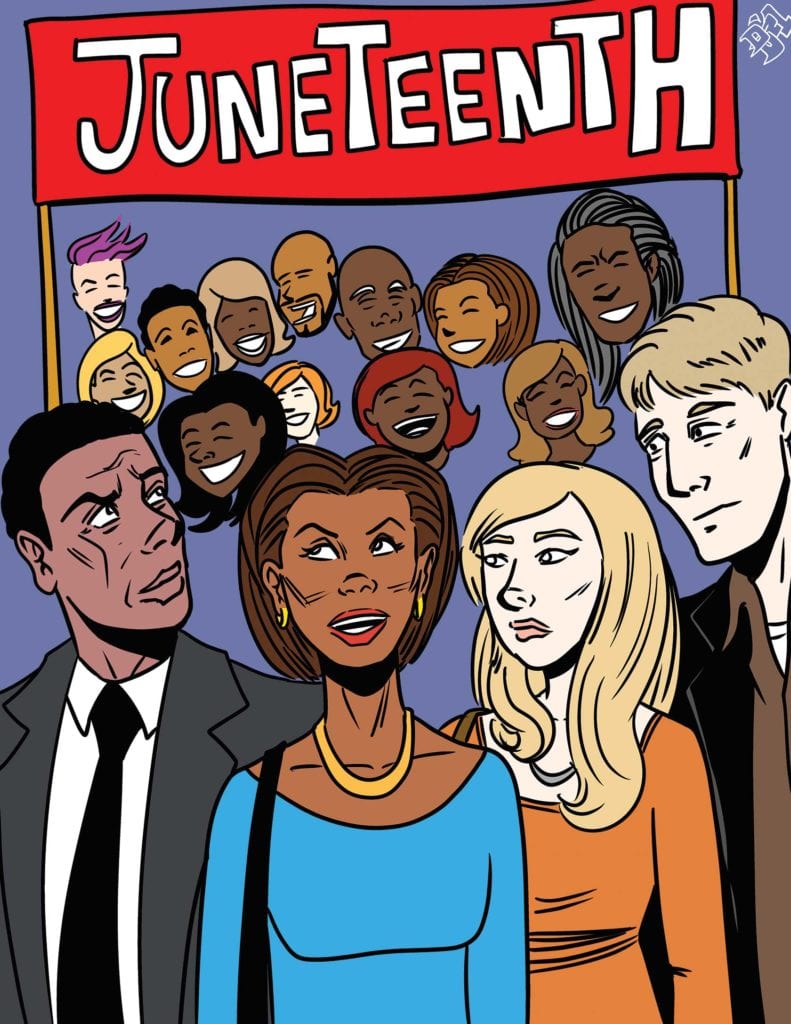
When Rev. Martin Luther King, Jr. Day was established as a national holiday, African Americans were elated. Rarely are individuals so honored. National holidays are usually just for annual events such as Christmas, Thanksgiving, New Year’s Day and Independence Day. However, there was little question among reasonable people that King was worthy of the special distinction. Now the nation has established another national holiday involving Blacks to recognize the end of slavery in Texas on June 19, 1865. It is named after the celebration by Blacks in Texas on that occasion — Juneteenth.
Slave labor was essentially for the success of the agricultural economy upon which the Southern states relied. Cotton was king in the South, and Northern politicians continued to oppose the practice of slavery. So on February 8, 1861 representatives from six states met in Montgomery, Ala. to establish a strategy to oppose policies of the Union. South Carolina, Mississippi, Florida, Alabama, Georgia and Louisiana conspired to secede from the United States of America and form a Confederacy.
Texas formally joined the Confederacy a month later on March 2 and Florida became an official member on April 22, just 10 days after the Civil War began with an attack on Fort Sumter in South Carolina on April 12.
As president, Abraham Lincoln had no authority to end slavery unilaterally. However, as commander in chief of the United States that was under attack, he could impose measures to improve the nation’s military status. Lincoln concluded that it would damage the Confederate capacity for war by freeing the slaves.
Consequently, on Jan. 1, 1863 Lincoln published the Emancipation Proclamation which stated in part: “All person held as slaves” within the rebellious states “are, and hence forward shall be free.”
On April 9, 1865 after four years of war, Robert E. Lee surrendered the last of the Confederate Army at the Appomattox Court House. It was learned that slaves in Texas did not know about being freed by the Emancipation Proclamation and they were also unaware that the Civil War was over. A Union general Gordon Granger was sent to Texas to inform the people. He arrived in Galveston on June 19, 1865 to bring the good news to Texas Blacks.
There is some dispute about why Blacks in Texas were unable to be freed by the Emancipation Proclamation. With Lee’s surrender on April 9, the president’s war time powers ended, but there was still the right to enforce the provisions imposed earlier. Clearly the state of Texas had no interest in mustering a militia to rebuff Granger’s modest armed force. So on June 19, 1865, Blacks in Texas became free of legally imposed slavery.
Thereafter, Juneteenth became in Texas the day for celebration. The event could not travel easily to other states which had their own history. Massachusetts, for example, outlawed slavery in 1783, and the nation’s first census in 1790 found no slaves resident in the state. Nonetheless, enthusiastic Texans often imply that Juneteenth ended slavery everywhere in the U.S.
That mistaken assertion could easily occur because the 13th Amendment to the U.S. Constitution was ratified on Dec. 6, 1865, less than six months after Juneteenth. The 13th Amendment states in part “neither slavery not involuntary servitude … shall exist within the United States…” Slavery then became illegal in every state of the Union.
The Dixiecrats spend considerable political muscle on efforts to disenfranchise Blacks and restrict their economic progress. It is time to mobilize the spirit of Juneteenth beyond celebration to become a force for the Black progress that is constitutionally required.






